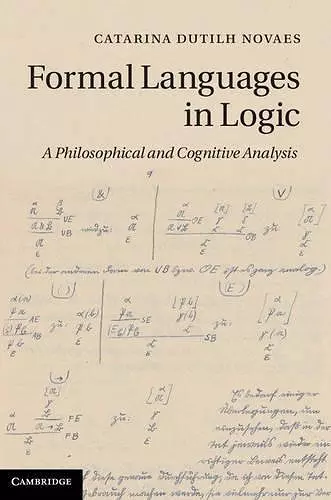Formal Languages in Logic
A Philosophical and Cognitive Analysis
Format:Hardback
Publisher:Cambridge University Press
Published:8th Nov '12
Currently unavailable, and unfortunately no date known when it will be back
This hardback is available in another edition too:
- Paperback£32.00was £32.00(9781107460317)

Examines the cognitive impact on formal languages for human reasoning, drawing on philosophy, historical development, psychology and cognitive science.
Presents a new approach to formal languages, in particular but not exclusively as used in logic. Focuses on their cognitive impact on human reasoning, drawing on historical developments, psychology, cognitive science and philosophy. For students and researchers in the areas of logic and computer science.Formal languages are widely regarded as being above all mathematical objects and as producing a greater level of precision and technical complexity in logical investigations because of this. Yet defining formal languages exclusively in this way offers only a partial and limited explanation of the impact which their use (and the uses of formalisms more generally elsewhere) actually has. In this book, Catarina Dutilh Novaes adopts a much wider conception of formal languages so as to investigate more broadly what exactly is going on when theorists put these tools to use. She looks at the history and philosophy of formal languages and focuses on the cognitive impact of formal languages on human reasoning, drawing on their historical development, psychology, cognitive science and philosophy. Her wide-ranging study will be valuable for both students and researchers in philosophy, logic, psychology and cognitive and computer science.
'Since the rise of logical empiricism, formal languages have become essential tools of doing philosophy. But why does formalization work? And what are its limitations? This book fills a crucial gap in the literature by addressing these questions from a cognitive, historical, and logical point of view. I recommend it to formal philosophers, critics of formal philosophy, and everyone with an interest in the techniques of conceptual engineering per se.' Hannes Leitgeb, Ludwig Maximilians Universität Munich
ISBN: 9781107020917
Dimensions: 236mm x 158mm x 20mm
Weight: 560g
282 pages